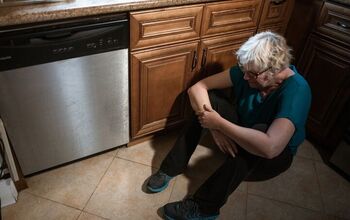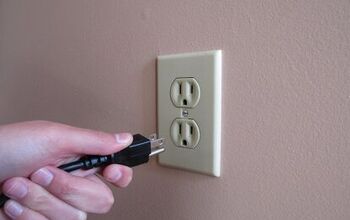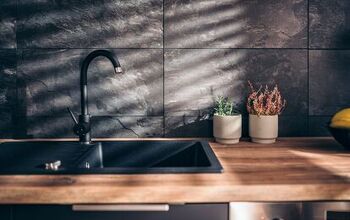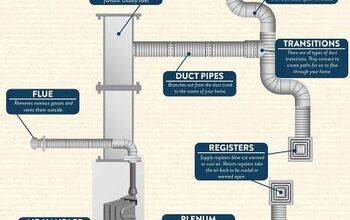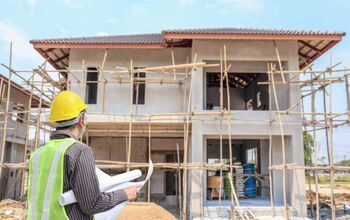What Are You Willing To Compromise When Buying A Home?

Shopping around for the perfect home isn’t exactly an easy feat, especially, if, like most house hunters, you’re working with a budget. Understandably, you want to find a property that checks all your boxes, but that rarely ever happens. If you’re looking for your first place, it’s even more important to compromise when buying a home.
Consider compromising on cosmetic issues, a longer commute, backyard size, and proximity to friends and family when shopping for a home. To broaden inventory possibilities, be lenient on things like square footage, special features, and the house’s age. Don’t skip an appraisal or home inspection or raise your price point outside of your comfort zone.
Buying a house is stressful enough without loading on the pressure. Enter into the process with an open mind and be ready to meet in the middle on some things.
7 Compromises To Make When House Hunting
When looking for a new house, you undoubtedly have a long list of wants and needs. But if you view every item on your list as a must-have, you’ll likely cut your options significantly or spend more than you planned.
Instead of making things harder than they need to be, open your mind to compromise to give yourself more options. One way to approach house-hunting is to consider the three main components of a property search — location, price, and the home itself. It’s not wise to compromise on price, leaving you with location and house features.
When it comes to these two categories, you’ll discover a few different points to consider as you look at homes.
1. Special House Features
Things like a swimming pool, fireplace, and a double garage might be on your wish list, but they aren’t necessities. Also, depending on the home, these are all things you could potentially add in time if you really wanted them.
In the meantime, don’t keep them on your short list. Look on the bright side, you’ll have more options and save money on costly upkeep, like pool repairs.
2. Proximity To Family And Friends
It would be great if you could live next door to your best friends or if your parents were down the street to help take care of the kids. However, don’t say no to every home that doesn’t fall within a stone’s throw of friends and family. Think about this -- what if a few months after your purchase, the people you wanted to live near ended up moving away?
3. Square Footage
Within reason you need to consider the square footage of the house you buy, but don’t make the number too restrictive. In other words, if you’re married with two kids and no plans to add to the family, do you really need a 4,000-square-foot house? Give yourself a range to work with, like 2,500 to 4,000 square feet to help broaden your selection.
4. The Size Of The Backyard
A big backyard is a priority for many soon-to-be homeowners, especially if they have kids or dogs. Give yourself some leeway regarding backyard size. If this is your first home, don’t put your foot down on a massive yard.
This is a feature you can work toward as you sell and move into a future home. Also, think of the reality that comes with having a huge backyard. Will you have the time and budget available to take care of it and maintain it properly?
5. Commute Time
Location is one of the biggest factors people should consider when shopping for a home. The theory is that you can change pretty much anything else about a house, but not its location. This is basically true, but that doesn’t mean you need to narrow down your choices to one specific street or tiny neighborhood.
As great as living five minutes from work would be, sticking to such a restrictive parameter can limit your options. If you can’t find what you’re looking for, consider lengthening your commute to widen your search radius.
For example, instead of a maximum commute of five miles, what would happen if you changed it to 15? It’s still a reasonable number but could significantly affect how many houses pop up during your search.
6. Cosmetic Changes
Issues like a sinking foundation, leaky roof, knob-and-tube wiring, and corroded plumbing pipes are no-brainers when it comes to deal-breakers. But simple cosmetic repairs shouldn’t be the only reason you say no to a property.
If a home ticks most of your boxes, but has some minor superficial defects, speak with someone first about what it would take to fix those problems. Some examples of cosmetic repairs and updates would be outdated light fixtures, a crack in a window, ripped window screens, or broken switch plates.
7. Age Of The Home
It’s tempting to look for only new or recent construction in the hopes that you’ll find a house that doesn’t have any problems. However, pretty much any home you buy will need some sort of maintenance, update, or repair.
You might refuse to look at homes 100 years old or more. But don’t ignore homes that are 20, 30, or even 50 or 60 years old either.
There’s a lot of potential in older homes, and many older properties are solidly built compared to certain newer construction properties. However, it all depends on the builder and where you’re shopping.
Three Things You Should Never Compromise On When Buying A House
Now that you know what’s worth compromising on for your new home, what are the things that should always stay on your list? Some people would tell you to never buy a home more than 100 years old or to steer clear of homes with questionable pasts (like haunted histories). But these things mean different things to different people, like if you love restoring old properties or watching horror movies.
But no matter what type of house you’re buying, there are three things you should not ignore.
1. Your Budget
When you’re house hunting, it’s extremely easy for emotions to take over. When that happens, and you find a home that seems to check off every box on your list, it’s tempting to bump up your price point a bit.
But be careful, because spending more than you can afford to get what seems to be the perfect property can backfire. You’ll end up house-poor, with little money left over to do anything but stay at home (but at least you got a nice house, right)?
2. The Home Inspection
You should always include a home inspection contingency in your purchase agreement. Don’t let a seller or agent talk you out of an inspection for fear that you’ll lose the deal. Buying a house is likely the biggest purchase you’ll ever make, and it’s important to protect your investment (and peace of mind) by finding out exactly what you’re buying.
3. The Appraisal
If you’re getting a mortgage, you don’t have the option to skip the appraisal. Your lender wants to make sure they aren’t giving you more money than necessary.
However, if under any circumstance, you have the choice to forgo an appraisal, don’t. Once again, your home is an investment and a big purchase. You deserve to know the value of what you’re buying.
A Quick Tip For Online Home Searches
If you’re like most house hunters these days, you’ll likely start your search online. Home search tools come with lots of handy filters to help you find that elusive perfect home. But the problem is, the more filters you use, the fewer homes you get in the results. Imagine that.
The thing is, this doesn’t always mean homes not on the list are missing the features you want. Sometimes certain points might have been left out of the listing. Therefore, put in your essentials and widen your range a bit when it comes to things like square footage, lot size, and the age of the home. Doing this will help reduce the chances of limiting your options when you’re looking online for houses.
Flexibility Makes House Hunting Less Stressful
Buying a house is stressful enough without making yourself jump through hoops in the form of a restrictive wish list. Who wouldn’t want to find a home that has it all? But holding out for the perfect house adds time, money, and headaches, since the perfect home doesn’t exist — unless you’re ridiculously wealthy and building everything from the ground up. (And even then you’ll likely find some things that need adjusting.)
Your best hope is to look for an “almost perfect” house or one that can become near-perfect in time. Compromising when house hunting gives you more options and reduces the pressure to find something perfect (which, spoiler alert, doesn’t exist).
Don’t downplay your budget or skip the appraisal and home inspection. Instead, consider compromising on square footage, location, lot size, various cosmetic repairs, and special features. You can tweak some of these compromises over time, making them a much more bearable sacrifice in the beginning.
Related Guides:

Stacy Randall is a wife, mother, and freelance writer from NOLA that has always had a love for DIY projects, home organization, and making spaces beautiful. Together with her husband, she has been spending the last several years lovingly renovating her grandparent's former home, making it their own and learning a lot about life along the way.
More by Stacy Randall













![10 Best Cordless Leaf Blowers – [2022 Reviews & Ultimate Guide]](https://cdn-fastly.upgradedhome.com/media/2023/07/31/9070789/10-best-cordless-leaf-blowers-2022-reviews-ultimate-guide.jpg?size=350x220)



